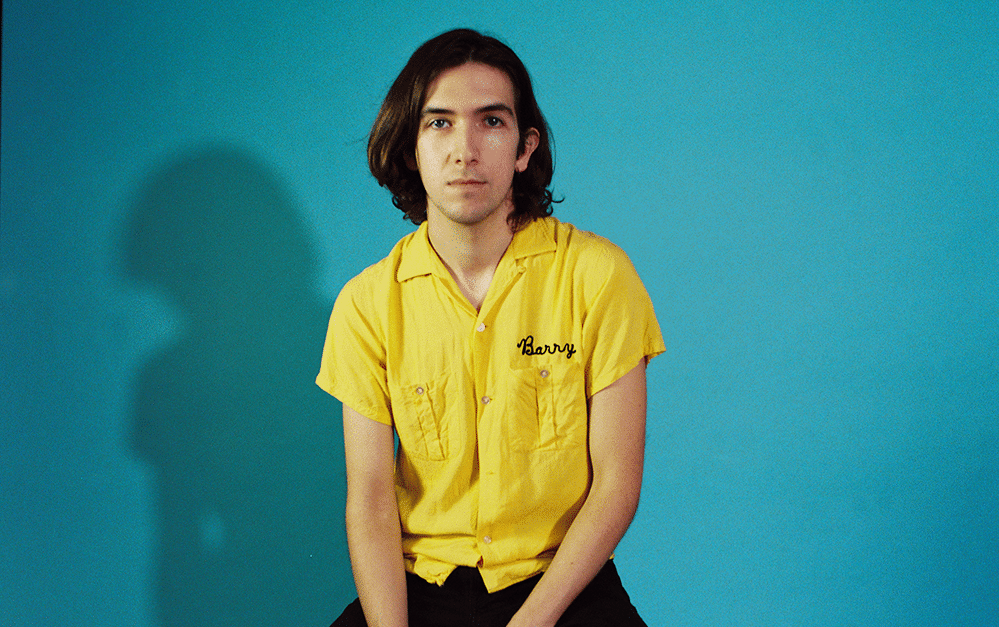Ironically performing in a county with which he shares a name, singer-songwriter Ricky Montgomery graced The Fillmore, Silver Spring in late February, as part of The Rick Tour: Another Rick in the Wall.
Unlike other artists who may conflate performing in Maryland with performing in the nation’s capital—wrongly assuming that Washington, D.C. comprises the entire DMV—Montgomery showered this particular pitstop with his ample love and affection, especially after exclaiming that this was the first sold out show on his tour. This thoughtful attention to detail lends to Montgomery’s charisma and ability to put on a show-stopping performance, despite his delayed entry into the world of musical success.
Following a lively opening act by Noah Floersch, who enamored the crowd with his wit and ability to get the crowd jumping even after a mostly somber set, the lights dimmed and the audience held their breath in anticipation for Montgomery’s stage debut. With a discography ranging from the pop-infused “Boy Toy” to the downright melancholic “Black Fins,” he landed on a safe middle ground for his opening number. Launching into an extended intro of “Line Without a Hook” heavily embellished with the pounding of drums, the number was further dramatized by the sharp contrast of Montgomery’s silhouette against a flashing, lit backdrop. A steady, solid choice, “Line Without a Hook” is still Mongtomery’s most popular song, boasting more than 500 million streams on Spotify. The song is a testament to his shot to stardom; it only makes sense to honor its place as number one. It also doesn’t hurt to start with a song that everyone knows, so as to not ostracize anyone who may only enjoy a song or two of his.
The Rick Tour is a prime example of what happens when you allow a theater kid to perform as they please. Even with a basic set design and wardrobe (consisting of a gray hoodie and plain black tank top), Montgomery’s biggest appeal is his storytelling. The music speaks for itself, of course, and is the main reason for his resurgence. “Mr. Loverman” is the sad ship edit song, comprising the basis for tragic TikToks about Gojo and Geto from Jujutsu Kaisen all the way to Lego Batman and Joker (the fact that Montgomery reacts to these edits probably doesn’t help temper their outlandishness). Even though his initial personal narrative has been turned into somewhat of a meme (or a tragedy, take your pick), it’s clear that he’s been moving in a different direction with the release of Rick (2023) and this subsequent tour. In his newer work, Montgomery has been unprecedentedly forthright with the story of his family, revealed in bits and pieces throughout his newer work.
Montgomery has detailed, in remarkable candor, his father’s self-inflicted passing and the grief surrounding it, particularly as he juxtaposes “Talk to You” and “Black Fins” in the setlist. “Talk to You” sees Montgomery wonder what it would be like to speak with his deceased father through the innocent perspective of a child wearing rose-colored glasses. On the flipside, “Black Fins” uses a darker tone to grapple with the circumstances surrounding this devastating incident. Montgomery’s voice resonates on a much deeper level live—so unlike the unsure breathiness of the studio version. Witnessing a moment steeped with such powerful acceptance was nothing short of cathartic; “no more little ghost I keep around / no more funny shadow in my house.”
Despite the sadness embedded throughout the set, Montgomery was still able to keep the energy high. At one point, he began playfully spinning a tale of vulnerability, instructing his band demurely to “hit it” before revealing his solemn demeanor was a fake-out designed as a bid to buy his merch. As his band played a rock tune, t-shirts flew through the air, reminding the audience that that’s where he gets most of his income from. The crowd also participated in an original TikTok challenge to promote the release of “Unknown Phantom,” a tactic that he claimed to not have come up with. While enhancing the overall concert experience, these two aspects also serve as a reminder of the overall commercialization of the music industry, and how hard smaller artists might have to work in order to gain similar traction; for an artist not as well versed in crowd control, these moments might come across as potentially clunky or forced.
While closing out the night with “Out Like a Light,” Montgomery insisted he was for sure done and not coming back onstage for a three-song encore. Much to everyone’s (faked) surprise, he did find his way back, this time nestled in a crewneck to perform “Sometimes I Need to Be Alone” (a personal favorite which I consider to be a perfect song). Smooth, haunting vocals transition to assurance: “it’s such a simple question / with such an easy answer.” Ditching the crewneck for the same black tank as before, this time in adequate preparation for his most exuberant performance of the night: “This December.” He gave explicit directions—“This is the part where you jump!”—with the caveat to do so if possible and comfortable, and to not forgo any canes or crutches like previous fans have attempted. In stark contrast from this bouncing interlude, the true closer of the night was fan favorite “Mr. Loverman.” Montgomery sandwiched his setlist between his two most famous songs (which could be seen on the signed paper airplane setlists he flew into the crowd), keeping everyone engaged until the very end, but also paid homage to the very songs that allowed him to rise to the pedestal he is currently on. Time and time again, Montgomery affirmed his gratitude for the support of his fans, acknowledging their place in his life and how they are the only reason he was able to pursue music. If not for the fans, he would have given up after the limited success of his first album Montgomery Ricky (2016).
While it is abundantly clear how grateful Montgomery is for his accomplishments, he’s undeniably earned every ounce of critical praise; his captivating presence on stage shows how much he belongs up there. Whenever he performs, he makes his listeners feel right at home, building a safe haven up brick by brick—or rather, Rick by Rick.






